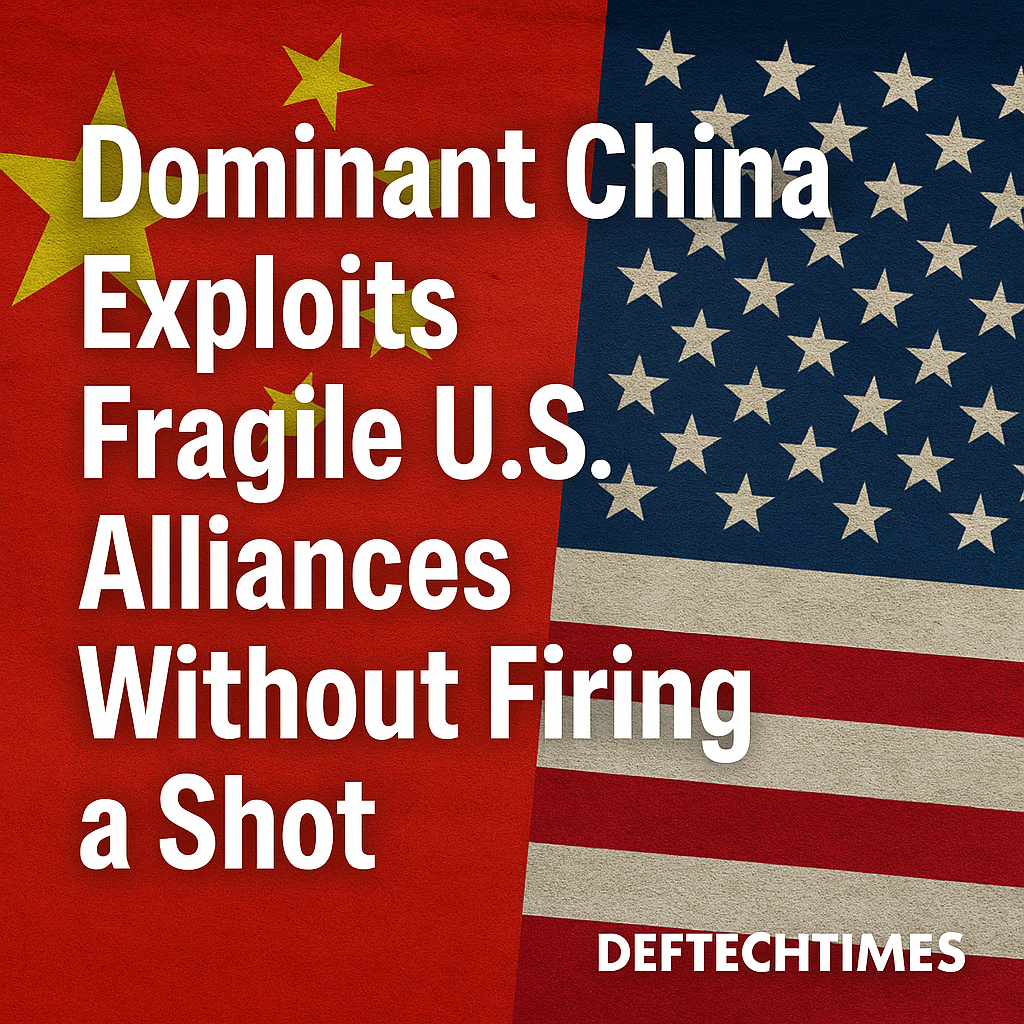For over seven decades, Taiwan has remained separated from mainland China. The island has managed to stay safe, largely because of a global system of alliances and military power that discouraged any attack. But today, that system is under pressure.
Fragile Global Balance is Already Tilting in China’s Favor
The current U.S. administration has created disruptions in global politics. Support for long-time allies is weakening. Some countries no longer trust that the U.S. will defend them. Military aid to other parts of the world is being cut back. Even powerful alliances like NATO may see the U.S. walk away.
This breakdown of old partnerships benefits China. Every time the U.S. pulls back or argues with its allies, China gains more room to act. Former allies of the United States may now be hesitant. Nations like Japan, South Korea, and Australia are watching closely. They used to feel safe knowing the U.S. would act fast to help Taiwan. But now, they may not be so sure.
China doesn’t have to do anything aggressive to take advantage of this. The world is already changing in its favor. Instead of rushing into a war, China could sit back and watch the alliances that have protected Taiwan start to fall apart on their own.
China’s military is expanding, but so is the US military
China has invested a lot in its military. It currently has the biggest navy in the world. It has built many ballistic missiles. It is building up its army with new technology. This makes some people think China might be ready to strike Taiwan.
But China also knows that invading Taiwan would not be easy. Taiwan is only about a hundred miles from China’s coast. Still, it has strong defenses. The island is full of mountains and narrow roads. These natural barriers would make an invasion difficult.
More importantly, Taiwan is not alone. In the past, if China had tried to invade, the U.S. and its allies might have responded together. That cooperation made China think twice. Even now, if the U.S. decides to act, others might join.
A record $1 trillion defense budget has also been declared by the United States. It is developing new weapons like advanced fighter jets and long-range missiles. These systems could help in defending Taiwan. The more time passes, the stronger the U.S. military could become. Rushing into war now might mean facing new weapons that China has not prepared for.
Even if some countries are unsure of U.S. support, the combined forces of nations like Japan, Australia, and others would still be hard for China to fight. It would be smarter for China to wait and see if the U.S. continues to lose allies instead of risking everything in a war that could go badly.
Internal U.S. Issues Reduce the Risk of Action
Inside the U.S., there is a lot of political fighting. The government is divided. Many people are tired of international conflicts. They are more focused on issues at home.This lessens the likelihood that the United States would launch a new war right away, particularly one as significant as the one with China.
Economic problems also make war a risky move. Trade wars and tariffs have already affected the economy. A fight with China could make things worse. Prices could go up. Supplies could run short. Factories could stop working. Since many everyday products in the U.S. come from China, this kind of war could be a disaster for American consumers.
Past wars have shown that sometimes leaders go to war to distract people from problems at home. But with the economy in a fragile state, starting a war could make people even more unhappy. Leaders in the U.S. know this. War with a manufacturing powerhouse like China would not be a quick or easy battle. It would affect nearly every part of life in the U.S.
China is likely aware of all these things. It knows that public opinion, defense readiness, and economic stability are all under pressure in the U.S. But instead of taking that as a reason to act quickly, it could see it as a reason to wait. The longer the U.S. remains in disarray, the more the balance of power shifts without China needing to fire a single shot.

